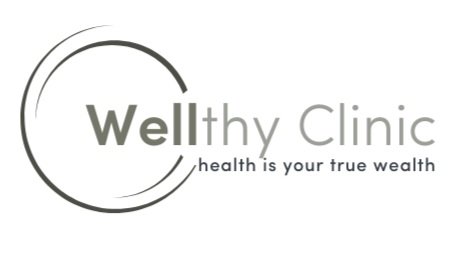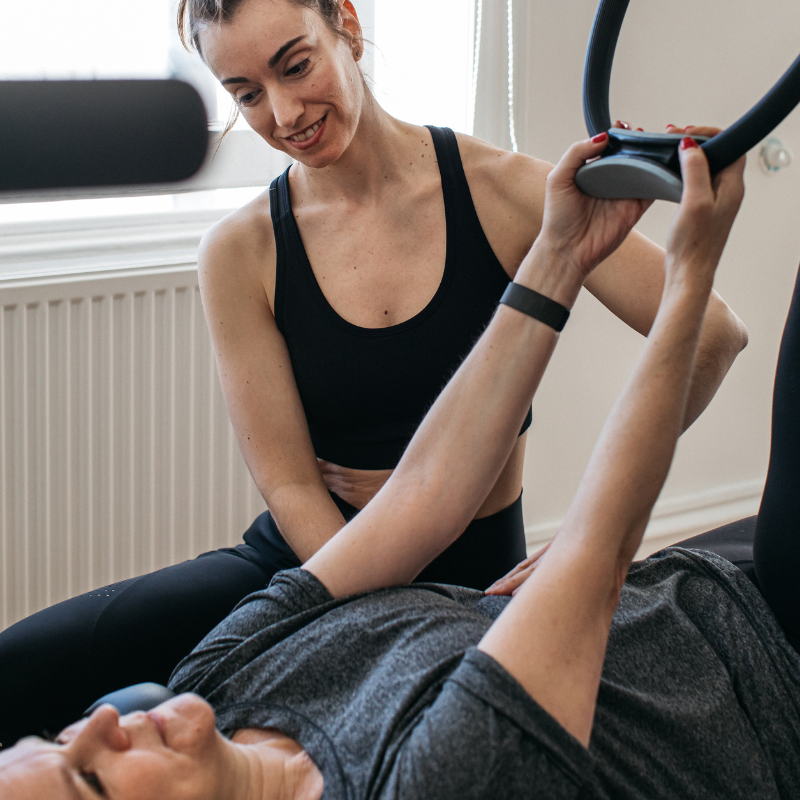Rehab Pilates in London
It’s frustrating and painful getting injured. You then can experience further frustration with the mixed messages and advice on what is best to do and who is best to see to feel better quicker. You may have given some home exercises that don’t seem to work. Your colleague suggested a massage, which didn’t help, so your friend suggested Pilates might be worth trying.
Rehab Pilates focuses on short- to medium-term recovery following injury or surgery, helping you regain strength, confidence and movement before returning to normal activity or ongoing exercise.
So here you are, researching. We believe we can help you, and we are both Osteopaths and Pilates Instructors with a wealth of knowledge and experience to support your recovery. Big fans of positive functional movements and are passionate about helping others. We have produced this article to hopefully answer some questions and discuss how rehab Pilates can help you and your recovery.
What is Rehab Pilates?
Rehab Pilates is a structured, movement-based therapy designed for people recovering from injury. It focuses on restoring functional strength, mobility, and muscular balance through low-impact exercises tailored to your stage of healing.
Why Rehab Pilates Works for Recovery
After an injury, the body develops compensations and imbalances that hinder recovery. Rehab Pilates targets these issues through progressive, pain-sensitive exercises that restore natural movement patterns without overloading the body.
Benefits of Rehab Pilates
● Safe, Low-Impact Strengthening: Exercises are adapted to support healing while preventing further aggravation.
● Functional Reconditioning: Helps transition from acute recovery to whole functional movement, whether returning to sport or daily activity.
● Reduced Inflammation and Pain: Research (Byrnes et al., 2018) suggests structured movement can reduce pain-related markers in the body.
● Rebuilds Confidence: Rehab plans help clients feel safe to move again and gradually build strength and control.
Who It’s For
Rehab Pilates is ideal for:
● Sports injuries (ankle, knee, shoulder)
● Post-surgical rehabilitation
● Repetitive strain or workplace injuries
● People returning to exercise after a period of rest
● Those seeking a structured progression back to fitness
Common Applications
● Shoulder Rehab: Improves upper back and shoulder mobility without aggravating symptoms.
● Lower Back Pain: Reformer-based rehab is shown to reduce disability and fear of movement in ongoing injury related lower back pain cases.
● Muscle Pain: Stretches and strengthens without triggering flare-ups, helping break cycles of tension and compensation.
What part of the body does Pilates work?
Having a flexible form of rehab is critical to gaining the desired results. It will work the whole body, but you will always work your powerhouse muscles within a session. Your powerhouse muscles consist of the core, lower back muscles, diaphragm and pelvic floor. Strengthening these deep postural muscles will give you a solid foundation to support your rehab, everyday life and, indeed, more demanding exercises.
Is Rehab Pilates good for injury?
Absolutely yes rehab Pilates is good for injuries; given the low-impact nature, you are exercising in a safe manner that is less likely to flare up your symptoms. Post-injury rehab exercise is vital to encourage circulation, reduce inflammation and optimise healing. A randomised controlled trial suggested equipment Reformer Pilates for low back pain were more effective for disability and Kinesiophobia scores. This was after a six-month follow-up compared to mat work for patients with ongoing injury related nonspecific low back pain.
Conclusion
We hope this information has been helpful. Hopefully, you now feel like this could be the start of an extraordinary journey to feel better and find better health. If you have any questions, feel free to contact us; otherwise, feel free to book your first session online or in person.
FAQs for Rehab Pilates
What is Rehab Pilates? Rehab Pilates is a movement-based therapy used to support injury recovery. It helps restore strength, flexibility, and stability through low-impact exercises tailored to your stage of healing and functional goals.
How is Rehab Pilates different from Clinical Pilates? Rehab Pilates focuses on recovery from acute injuries, such as muscle tears or joint sprains, and is often used in the early-to-mid stages of rehabilitation. Clinical Pilates, by contrast, is aimed at managing long-term conditions like ongoing injury related back pain or postural dysfunction.
What are the three phases of Pilates-based rehabilitation? Typically, these include:
Pain and inflammation management
Movement re-education and stability
Functional conditioning and return to activity
Rehab Pilates is structured around these stages to promote safe, gradual recovery.
Is Rehab Pilates effective for injury recovery? Yes, studies show Rehab Pilates improves recovery outcomes for conditions like back pain, shoulder injuries, and post-operative rehabilitation. Its low-impact nature reduces strain while promoting circulation, coordination, and strength.
Can Rehab Pilates help with shoulder or joint pain? Absolutely. Rehab Pilates improves mobility and muscular control around joints like the shoulder or hip. It can be especially beneficial for sports injuries, overuse syndromes, and post-surgical recovery.
Is Reformer Pilates better than mat-based rehab? Reformer Pilates can offer more precision and support, particularly in early rehab stages. It allows for controlled resistance, range-specific work, and progression tracking. Mat-based rehab is more accessible and useful for home-based continuity.
Is Pilates similar to physiotherapy? While Pilates and physiotherapy can overlap in rehabilitation, they are not the same. Physiotherapy often includes manual therapy and diagnostic techniques, while Rehab Pilates focuses on movement retraining under professional guidance. At Wellthy Clinic, we offer both within integrated sessions.
How often should I do Rehab Pilates? This depends on the stage of recovery and severity of the injury. Initially, 2–3 sessions per week may be recommended, gradually tapering to 1–2 times weekly as function improves.
Can Rehab Pilates prevent future injuries? Yes. By addressing muscular imbalances, poor biomechanics, and compensatory movement patterns, Rehab Pilates improves neuromuscular control and reduces the risk of re-injury in daily life or sport.
References
Byrnes, K et al (2018) Is Pilates an effective rehabilitation tool? A systematic review Journal of Bodywork and movement therapies Vol 22 (1) pp.192-202.
Da Luz et al (2014) Effectiveness of Mat Pilates or Equipment-Based Pilates Exercises in Patients With Chronic Nonspecific Low Back Pain: A Randomised Controlled Trial Physical Therapy Issue 5 pp. 623-631.
Matthew Glithero
Matthew Glithero is the Clinic Director. Osteopath and Pilates Instructor with a background in Sports Science. He has completed his Advanced equipment training with APPI Pilates for Rehabilitation.




